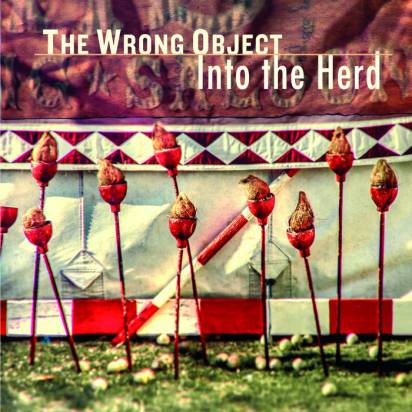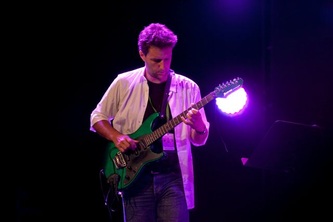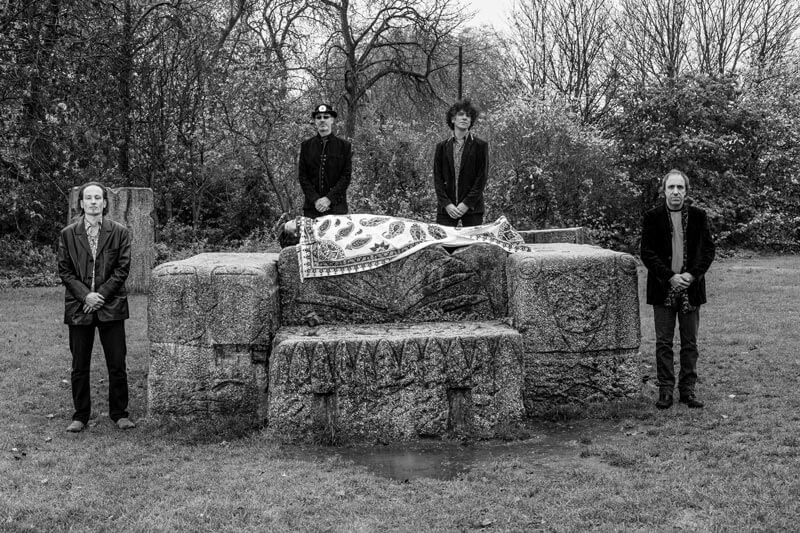
I published a few posts a year or so ago centred around the rather self indulgent social media meme of selecting your favourite 5 or 10 somethings, in this case 20 albums which changed my life. A good friend commented that he reckoned every single one of them would be ‘prog’, the inference a good-humoured one that plays on the common parlance that ‘prog’ is something of a four-letter word.
Stratus Luna are a Brazilian band that celebrate all that is good about the genre, rather than a collection of clichés that defile the term. A four piece aged between 17 and 21, this is a compilation of instrumentals of on the one part considerable virtuosity, and on the other hand complex but accessible instrumental compositions. In case you’re wondering about why a review of their eponymous debut album should appear here, then it’s the fact that 3 cousins who have apparently already been playing together since 2007(!)are joined by Gabriel Golfetti on bass who some of you might remember as the son of Gong guitarist Fabio Golfetti, and whose duo electronic album ‘Lux Aeterna’ was reviewed here. Fabio is also credited as mastering the album. No reflection on the excellent work of Gabriel and an extremely tight drummer in Giovanni Lenti , but it is brothers Gustavo and Ricardo Santhiago who provide the most stellar performances here on keyboard and guitar respectively – a genuinely astonishing double act.

If the ‘Lux Aeterna’ connection and some initial keyboard reverbs on ‘Nimue’ suggest this might be purely spacey fayre, the illusion is quickly broken by church organ sounds, clean guitar and sweeping keyboard pastiches. Shades of the Enid, maybe? No, this is much less self-important and with considerably more substance. Memorable moments are everywhere: the funk bass keyboard section of ‘Nimue’, the gorgeous, haunting two string guitar theme which opens and concludes ‘Onirica’ and the gloriously precocious Ozricsesque flurries which precedes its finale, or the talking wah wah of ‘O Centro do Labirinto’. The closer ‘Efemera’ appears to be set up as the stand out track, with some memorably prodigious guitar soloing which recalls Mike Oldfield soaraway moments high on the fretboard, but it is possibly trumped by ‘Zarabatana’, a 9 minute piece where sitar and hand drums unexpectedly emerge out of a rocky romp (the Hindustani influences referred to on the band’s website?), with a a hint of ‘Matte Kudesai’ thrown in for good measure before the piece rocks on with another intricately picked out guitar solo.
Meanwhile the slow walkin’ talk bass of ‘Pandoras Voadoras’ is the theme which you will find impossible not to be humming constantly at inopportune moments. Whilst Gustavo is equally proficient on acoustic and electric piano and those lovely clear organ sounds the killer moments are when he switches to Hammond, where the interplay with guitar reminds me often of that the very underrated Seventies band Arthur Brown’s Kingdom Come.

Another relevant reference point might also, (as with recent albums from Fabio Golfetti’s own excellent band Violeta de Outono), be Khan. The material I review on this blog is without exception ‘progressive’ music, but generally is characterised by moments of sonic dissonance, or of time signatures which change obliquely at will. Stratus Luna does neither of these things. There are no dud notes, no throwaway filler passages, just a glorious journey of melodic instrumentation which even at the end of May will, I suspect, end up being my favourite album of 2019. On the evidence of Stratus Luna, if ‘prog’ is indeed a four letter word, then I may need to purchase a swear box!
https://stratusluna.bandcamp.com/album/stratus-luna












